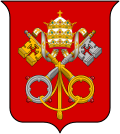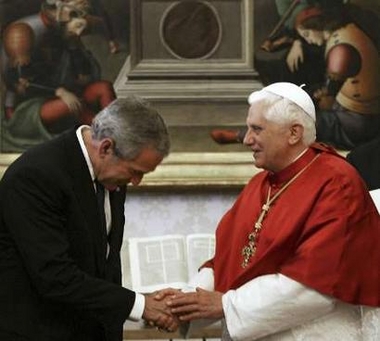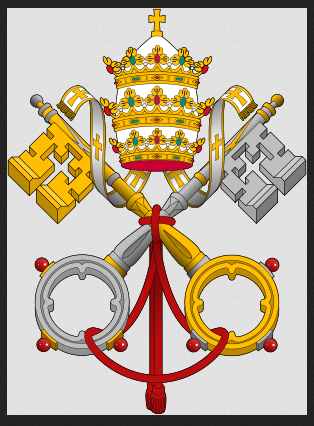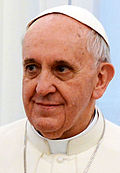Contents
- Introduction
- Preface
- Overview
- Relief Valve
- LECTURE 1: Why We Are In The Dark About Money
- LECTURE 2: The Con
-
LECTURE 3: The Vatican-Central to the Origins of Money & Power
- The Vatican
- The Holy See
- Vatican Canon Law
- Vatican Censorship
- Vatican Bank
- Excerpts from La Popesa
- The Vatican Sex Abuse Cover Up
- The Tithe Business Model
- Vatican - Women Priests
- Jesuits
- So began the Order of The Knights Templar
- Vatican Army and Navy: Sovereign Military Order of Malta (SMOM)
- SMOM owned St. Croix U.S.V.I.
- Committee of 300, The Club of Rome and Inner Cores of the SMOM
- Anti-Zionist Propaganda
- House of Rothschild
- Rothschild Bank
- Lecture 3 Objectives and Discussion Questions
- LECTURE 4: London The Corporation Origins of Opium Drug Smuggling
- LECTURE 5: U.S. Pirates, Boston Brahmins Opium Drug Smugglers
- LECTURE 6: The Shady Origins Of The Federal Reserve
- LECTURE 7: How The Rich Protect Their Money
- LECTURE 8: How To Protect Your Money From The 1% Predators
- LECTURE 9: Final Thoughts
BU$INESS MODEL - GOVERNANCE, BANK, LAW AND MILITARY
The idea of a Europe united against its enemies is not a late 20th century construct. It has its roots in a proposal to unify Europe after the fall of Constantinople to the Turks in 1453, although this was more based on religious ideology than a common geographic location. Europe was largely united under the Holy Roman Empire, although as Voltaire famously noted, it was in no way holy, nor Roman, nor an empire.
THE REAL POWER
The "Church" is a Catholic Country with it's own Government, Laws, and International Status. It also has it's own Military!
The Church as a religion evolved to become the legal status of a Nation. Anyone who believes they are Catholic means they are a citizen of a country. The name of this country is the Vatican City State which has acquired it's own kind infrastructure to govern itself including laws, a treasury, Banks, a military and the "legal" or "official" recognition from other countries that it was a nation able to do business with other countries too.
In the final words of his book The Vatican Empire, Nino Lo Bello states, "While the Vatican has remained secretive about its fiscal policy, it has never believed that the investment of Church money was either illegal,objectionable in principle, or contrary to good conscience.In seeking to resolve the conflict between that which is to be rendered to God and that which is to be rendered to Caesar, the Vatican has developed its own special modus vivendi between the sacred and the secular. The view of the pope as a kind of chairman of the board may shock some readers. But let us remember that the Vatican is a remarkable, centuries-old institution, and that, when it comes to money, it is one thatis fully in tune with the spirit of the times."
THE VATICAN STATE
 Coat of arms Holy See
Coat of arms Holy See
Although it is often referred to by the term "the Vatican", the Holy See is not the same entity as the Vatican City State, which came into existence only in 1929, while the Holy See, the episcopal see of Rome, dates back to early Christian times. Ambassadors are officially accredited not to the Vatican City State but to "the Holy See", and papal representatives to states and international organizations are recognized as representing the Holy See, not the Vatican City State.
Vatican City was established in 1929 by the Lateran Treaty, signed by Cardinal Secretary of State Pietro Gasparri, on behalf of the Holy See and by Prime Minister Benito Mussolini on behalf of the Kingdom of Italy. Vatican City State is distinct from the Holy See, which dates back to early Christianity and is the main episcopal see of 1.166 billion Latin and Eastern Catholic adherents around the globe.
- 1987 CNN Describes the Vatican
- 2013 The Vatican will need 2.8 petabytes of space for its plan to digitize the Vatican Apostolic Library.
- Pope Benedict XVI deletes all his tweets @pontifex
- The Vatican Archive: the Pope's private library From Hitler to Henry VIII - the secret Vatican archives are a secret no more.
- PARTS OF THE VATICAN THAT TOURISTS NEVER SEE
- LIFE AT THE VATICAN: UNEARTHING HISTORY BENEATH ST. PETERS
 Bush: God told me to invade Iraq
Bush: God told me to invade Iraq
"George Bush sees God in the eyes of the Pope"
George Bush bows to the Pope.
George Bush was knighted at Yale's Skull and Bones society founded by William Russell (Russell Trust), a Knights Templar.
Bonesmen are Knights of Eulogia (Eucharist), an elite arm of the Templars.
Bill Clinton was Jesuit-trained at Georgetown University, then Rhodes scholar at Oxford. Prime Minister of Britain Tony Blair, was Freemason, now Roman Catholic convert (very common for knights). Rudolph Giuliani is a military Knighted Roman Catholic. Donald Rumsfeld, attended the Jesuit Georgetown University. He attends the exclusive Knights Templar founded Bohemian Grove in California regularly. multi-national military forces in Iraq David Petraeus, was Jesuit-trained at Georgetown University. Secretary of defense Robert Gates was Jesuit-trained at Georgetown University. George Casey was Jesuit-trained at Georgetown University.
AMERICAN SUPREME COURT
In America There is No Longer Separation Between Church and State:
All five justices are in the majority with Justice Gonzales are Catholic.
The four justices who are either Protestant or Jewish all voted in accord with settled precedent. It is mortifying to have to point this out. But it is too obvious, and too telling, to ignore.
"Whatever one's religion in his private life may be, for the officeholder, nothing takes precedence over his oath to uphold the Constitution and all its parts -- including the First Amendment and the strict separation of church and state." -- John F Kennedy,
Interview, Look, March 3, 1959, from Albert J Menendez and Edd Doerr, The Great Quotations on Religious Freedom
Religious Affiliation of the U.S. Supreme Court
- John Roberts (Chief Justice)... Catholic
- Anthony M. Kennedy...Catholic
- Antonin Scalia.......Catholic
- Sonia Sotomayor....Catholic
- Clarence Thomas......Catholic
- Samuel Alito.........Catholic
- David H. Souter......Episcopalian
- Stephen G. Breyer... Jewish
- Ruth Bader Ginsburg..Jewish
- Elena Kagan....Jewish
The requirements of Catholics, who by following this Church are considered citizens of a country and pledge loyalty to the Vatican!
BOOK II. THE PEOPLE OF GOD LIBER II. DE POPULO DEI
* PART I. THE CHRISTIAN FAITHFUL (Cann. 204 - 207)
+TITLE I. THE OBLIGATIONS AND RIGHTS OF ALL THE CHRISTIAN FAITHFUL (Cann. 208 - 223)
§3. According to the knowledge, competence, and prestige which they possess, they have the right and even at times the duty to manifest to the sacred pastors their opinion on matters which pertain to the good of the Church and to make their opinion known to the rest of the Christian faithful, without prejudice to the integrity of faith and morals, with reverence toward their pastors, and attentive to common advantage and the dignity of persons.
§3. The Christian faithful have the right not to be punished with canonical penalties except according to the norm of law.
Can. 218 Those engaged in the sacred disciplines have a just freedom of inquiry and of expressing their opinion prudently on those matters in which they possess expertise, while observing the submission due to the magisterium of the Church.
Can. 219 All the Christian faithful have the right to be free from any kind of coercion in choosing a state of life.
Can. 220 No one is permitted to harm illegitimately the good reputation which a person possesses nor to injure the right of any person to protect his or her own privacy.
Can. 221 §1. The Christian faithful can legitimately vindicate and defend the rights which they possess in the Church in the competent ecclesiastical forum according to the norm of law.
§2. If they are summoned to a trial by a competent authority, the Christian faithful also have the right to be judged according to the prescripts of the law applied with equity.
§3. The Christian faithful have the right not to be punished with canonical penalties except according to the norm of law.
Can. 222 §1. The Christian faithful are obliged to assist with the needs of the Church so that the Church has what is necessary for divine worship, for the works of the apostolate and of charity, and for the decent support of ministers.
§2. They are also obliged to promote social justice and, mindful of the precept of the Lord, to assist the poor from their own resources.
Can. 223 §1. In exercising their rights, the Christian faithful, both as individuals and gathered together in associations, must take into account the common good of the Church, the rights of others, and their own duties toward others.
tHE POPE
 Emblem of the Papacy
Emblem of the Papacy
2005 - 2013 Ratzinger did not vote.
He fell on his sword to fire everyone, now they could elect a new monarch. Cardinal Jorge Mario Bergoglio of Buenos Aires, was the runner-up to the German-born Joseph Ratzinger at the 2005 conclave.
 3/13/13 Habemus Papam Franciscum - We have a pope!
3/13/13 Habemus Papam Franciscum - We have a pope!
Pope Francis a Jesuit from Latin America Elected with 2/3 majority - 77 votes
“Do you accept your canonical election as supreme pontiff?” When Bergoglio accepted, he was then asked, “And by what name do you want to be called?” 76 year old Argentine Cardinal Jorge Mario Bergoglio, archbishop of Buenos Aires, stepped onto the balcony as the new pope. The now appointed Bishop of Rome, [new name] Pope Francis, is the 265th successor of St. Peter and leader of the worldwide Catholic Church consisting of 1.2 billion Catholics. 2/3rds of that number are Catholics who are poor and live in the developing world. More than half of the world’s Catholics live outside of Europe, and more than half of them live in Latin America. He is the first Jesuit, the first non-European in modern times and first Latin American pope. He also is the first to take the name Francis, for the saint devoted to the poor. The election of the first Latin American acknowledges that the church’s most important constituency isn't Europe.
It’s without dispute that Jose Mario Bergoglio, like most other Argentines, failed to openly confront the 1976-1983 military junta while it was kidnapping and killing thousands of people in a “dirty war” to eliminate leftist opponents. Bergoglio twice invoked his right under Argentine law to refuse to appear in open court in trials involving torture and murder inside the feared Navy Mechanics School and the theft of babies from detainees. When he eventually did testify in 2010, his answers were evasive, human rights attorney Myriam Bregman told the AP. Bergoglio’s own statements proved church officials knew from early on that the junta was torturing and killing its citizens even as the church publicly endorsed the dictators, she said. “The dictatorship could not have operated this way without this key support,” she said. nydailynews.com
OVERHALL THE BANKING SYSTEM
Pope Francis' revolutionary encyclical addresses not just climate change but the banking crisis. Interestingly, the solution to that crisis may have been modeled in the Middle Ages by Franciscan monks following the Saint from whom the Pope took his name.
Pope Francis has been called "the revolutionary Pope." Before he became Pope Francis, he was a Jesuit Cardinal in Argentina named Jorge Mario Bergoglio, the son of a rail worker. Moments after his election, he made history by taking on the name Francis, after Saint Francis of Assisi, the leader of a rival order known to have shunned wealth to live in poverty. Pope Francis' June 2015 encyclical is called "Praised Be," a title based on an ancient song attributed to St. Francis. Most papal encyclicals are addressed only to Roman Catholics, but this one is addressed to the world. And while its main focus is considered to be climate change, its 184 pages cover much more than that. Among other sweeping reforms, it calls for a radical overhaul of the banking system. It states in Section IV:
Today, in view of the common good, there is urgent need for politics and economics to enter into a frank dialogue in the service of life, especially human life. Saving banks at any cost, making the public pay the price, forgoing a firm commitment to reviewing and reforming the entire system, only reaffirms the absolute power of a financial system, a power which has no future and will only give rise to new crises after a slow, costly and only apparent recovery. The financial crisis of 2007-08 provided an opportunity to develop a new economy, more attentive to ethical principles, and new ways of regulating speculative financial practices and virtual wealth. But the response to the crisis did not include rethinking the outdated criteria which continue to rule the world. . . . A strategy for real change calls for rethinking processes in their entirety, for it is not enough to include a few superficial ecological considerations while failing to question the logic which underlies present-day culture.
We need a strategy for eliminating the financial parasite that is keeping us trapped in a prison of scarcity and debt.
The Franciscan Alternative: Banking for the People
In the Middle Ages, the financial parasite draining the people of their assets and livelihoods was understood to be "usury" -- charging rent for the use of money. Lending money at interest was forbidden to Christians, as a breach of the prohibition on usury proclaimed by Jesus in Luke 6:33. But there was a serious shortage of the precious metal coins that were the official medium of exchange, creating a need to expand the money supply with loans on credit. An exception was therefore made to the proscription against usury for the Jews, whose Scriptures forbade usury only to "brothers" (meaning other Jews). This gave them a virtual monopoly on lending, however, allowing them to charge excessively high rates because there were no competitors. Interest sometimes went as high as 60 percent. These rates were particularly devastating to the poor. To remedy the situation, Franciscan monks, defying the prohibitions of the Dominicans and Augustinians, formed charitable pawnshops called montes pietatus (pious or non-speculative collections of funds). These shops lent at low or no interest on the security of valuables left with the institution. The first true mons pietatis made loans that were interest-free. Unfortunately, it went broke in the process. Expenses were to come out of the original capital investment; but that left no money to run the bank, and it eventually had to close.
Franciscan monks then established montes pietatis in Italy that lent at low rates of interest. They did not seek to make a profit on their loans. But they faced bitter opposition, not only from their banking competitors but from other theologians. It was not until 1515 that the montes were officially declared to be meritorious. After that, they spread rapidly in Italy and other European countries. They soon evolved into banks, which were public in nature and served public and charitable purposes. This public bank tradition became the modern European tradition of public, cooperative and savings banks. It is particularly strong today in the municipal banks of Germany called Sparkassen. The public banking concept at the heart of the Sparkassen was explored in the 18th century by the Irish philosopher Bishop George Berkeley, in a treatise called The Plan of a National Bank. Berkeley visited America and his work was studied by Benjamin Franklin, who popularized the public banking model in colonial Pennsylvania. We can break free from this exploitative system by returning the power to create money to governments and the people they represent. The strategy for real change called for by Pope Francis can be furthered with government-issued money of the sort originated by the American colonists, augmented by a network of publicly-owned banks exemplified in the state-owned Bank of North Dakota.
PRIVILEGE
IS THE LEGAL CONCEPT WHEREBY SOMEONE IS EXEMPT FROM THE ORDINARY OPERATION OF THE LAW OVER A TIME FOR SOME SPECIFIC PURPOSE.
LOOPHOLE
CHAPTER IV INDULGENCES IN THE CANON LAW
NO MATTER WHAT THE CHURCH DOES THAT IS ILLEGAL THEY CAN GET AWAY WITH IT BECAUSE SOMEONE CAN EXCUSE THEM.
- Can. 992 An indulgence is the remission before God of temporal punishment for sins whose guilt is already forgiven, which a properly disposed member of the Christian faithful gains under certain and defined conditions by the assistance of the Church which as minister of redemption dispenses and applies authoritatively the treasury of the satisfactions of Christ and the saints.
- Can. 993 An indulgence is partial or plenary insofar as it partially or totally frees from the temporal punishment due to sins.
- Can. 994 Any member of the faithful can gain partial or plenary indulgences for oneself or apply them to the dead by way of suffrage.
- Can. 995 §1. In addition to the supreme a Athority of the Church, only those to whom this power is acknowledged in the law or granted by the Roman Pontiff can bestow indulgences.
Alois Brunner, and Josef Mengele
- Mengele used forged documents from Genoa, Italy, to obtain the passport under the name Gregor Hellmuth, he told the station.
- VATICAN BANK SUED FOR ALLEGED WAR CRIMES
How the Vatican Can Shed Light on the Holocaust
The Vatican is refusing to release its Holocaust-era archives “The debate over the church’s secret wartime files is not new. The Vatican is the only country in Europe that refuses to open all of its World War II archives to independent historians and researchers. The issue is more than simply an academic debate over the appropriate rules for public disclosure of historically significant documents. The church’s files are thought to contain important information about the Holocaust in Nazi-occupied Eastern Europe.”
The debate over the church’s secret wartime files is not new. The Vatican is the only country in Europe that refuses to open all of its World War II archives to independent historians and researchers. The issue is more than simply an academic debate over the appropriate rules for public disclosure of historically significant documents. The church’s files are thought to contain important information about the Holocaust in Nazi-occupied Eastern Europe. The Vatican had eyes and ears in the killing fields: tens of thousands of parish priests who sent letters and reports to their bishops, who in turn forwarded them to the secretary of state in Vatican City. One of the monsignors in charge of reviewing those thousands of reports was Giovanni Battista Montini, later Pope Paul VI.
